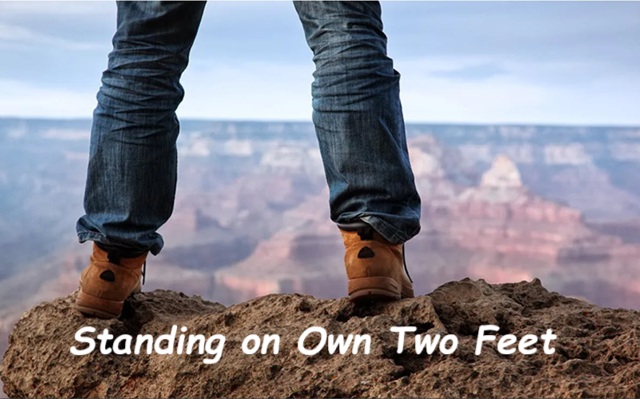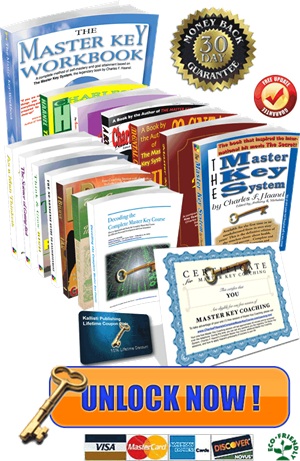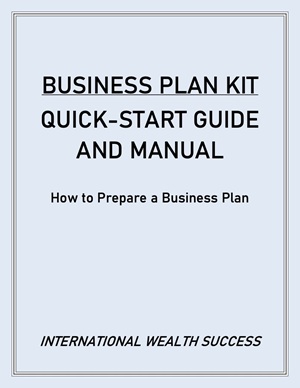How to Independently Stand on Your Own Two Feet
We’ve looked at the concept of personal independence, examining what it is and why it’s important. We’ve also looked at the issue of self-trust, examining why it is important and looking at ways to develop and grow self-trust to promote greater independence. In this chapter, we’re going to look at some of the specific and actionable steps you can begin to take to promote your own independence. These are easy tips and techniques that anyone can use to become better able to stand tall on your own two feet.
Know Who You Are
If you don’t have any idea who you really are then you can never hope to become truly independent. This is because independence is based on identity. As we discussed in the first chapter, independence neither flaunts rules nor does it follow them blindly. Instead, it uses rationality and reason to establish personal rules that make sense to both the individual and the world that they live in. It is about setting personal standards and then doing what can be done to live by those standards.
If you don’t understand who you are, you can never hope to set standards that make sense to you. Instead of a personal code that guides your actions and steadies you, you end up with a myriad of behaviors that are changeable and variable.
So, you need to begin examining your behavior throughout your day. Did you say everything that you needed to say in any given situation? Did you express how you really felt about an issue or did you defer to the opinion? The key here is expressing the truth as you saw it or felt it. Under ideal circumstances, there should be no difference between what you feel inside and what you say and do, which is how you express yourself to the world.
If you are experiencing a disjunction between your internal and external dialogue, this is a sign that you may not be fully in touch with or understand who you are as a person. Examining specific situations where you felt one way but acted another can help you gain the understanding that you need. Keeping a journal and recording any differences you observe will also help. In the end, being aware of any gap between the inside you and the outside you is usually enough to cause your two disparate halves to come into eventual alignment. Once you know who it is that you are, gaining full independence in your life becomes that much easier to achieve.
Not only get to know who you are but love who you are!
Question Your Beliefs and Assumptions
We all have a set of personal beliefs and assumptions that guide us through life. While many of us would defend these beliefs and assumptions quite vigorously, very few of us take the time to critically examine the basis of what we believe in and what we believe to be true. However, examining your belief system is necessary if you want to stand on your own two feet and live an independent life. How could it possibly be otherwise? How could you call yourself independent while you vigorously defend personal beliefs and assumptions that are incorrect and have no basis in fact?
I have always been thankful to my grammar school teachers who forced us to question all material presented in the Classroom
Independence requires both intelligence and courage. The act of examining the beliefs that we hold dearest and that we feel define who we are is frightening. If, after an honest examination, you should find that a belief that is important to you is incorrect, would you have the courage to change your behavior accordingly?
Very often opinions and beliefs are nothing more than habits. They were culturally or socially ingrained upon us at a young age. We have continued to make them a part of our belief system only because that is what we are accustomed to doing. Personal growth can only come from an honest assessment of these types of habitual assumptions. Intelligence and independence both demand that any belief or opinion found to be illogical, irrational or just plain wrong must be rejected outright. Your opinions should be formed by you, internally. They should not be imposed upon you from outside, externally. Take the time to do a thorough housecleaning of what you believe. What you find may surprise you, challenge you, and ultimately make you a more independent thinker and person.
Be Assertive
There is no more dependent behavior than going along with something that you don’t believe in because you don’t want to make waves or upset the apple cart. Some people believe that acquiescing makes things easier. In reality, it does not. The world is a messy place. There are constant struggles for power over the littlest things. No one is perfect and no one has all of the answers or even one single “right” answer. The truth on any issue is subjective. This is simply the way that things are.
Trying to run from this truth or deny that it exists only serves to continue to make you dependent on other people’s truths and desires. The happiness and fulfillment that come from living an independent life come from being confident enough to assert your position, your opinions, and your beliefs.
This is a skill that you can practice every day. Speak up for what you believe in. Tell the truth as you see it. Begin to set healthy boundaries for yourself. Learn to say NO when and where appropriate. Learn to feel comfortable with saying no.
Independence is nothing if not about an individual exercising his or her right to live a full life on their terms while maintaining a balance with the people around them. Assertiveness is the key to this balance. If you don’t say what you feel, want, and need, you can never truly be independent.
Conclusion
You now should have a thorough understanding of what it takes to bring a greater measure of independence into your personal life. We have looked at what independence is and we have examined why this is so vitally important for you to live a complete life. We looked at the issue of trusting yourself and learned why this is a critical component of independent living. We also looked at some of the things that you can do to develop and grow self-trust. Finally, we examined some of the tips and techniques that you can use daily to expand your sense of independence and stand on your own two feet.
At this point, you have everything you need to start cutting the ties of dependence. With the information in this series of articles, you will be able to carve out space for yourself in this world, a space that is yours and yours alone.
Viva Independence!
How was this simple course?
Share your thoughts and personal experiences below.











